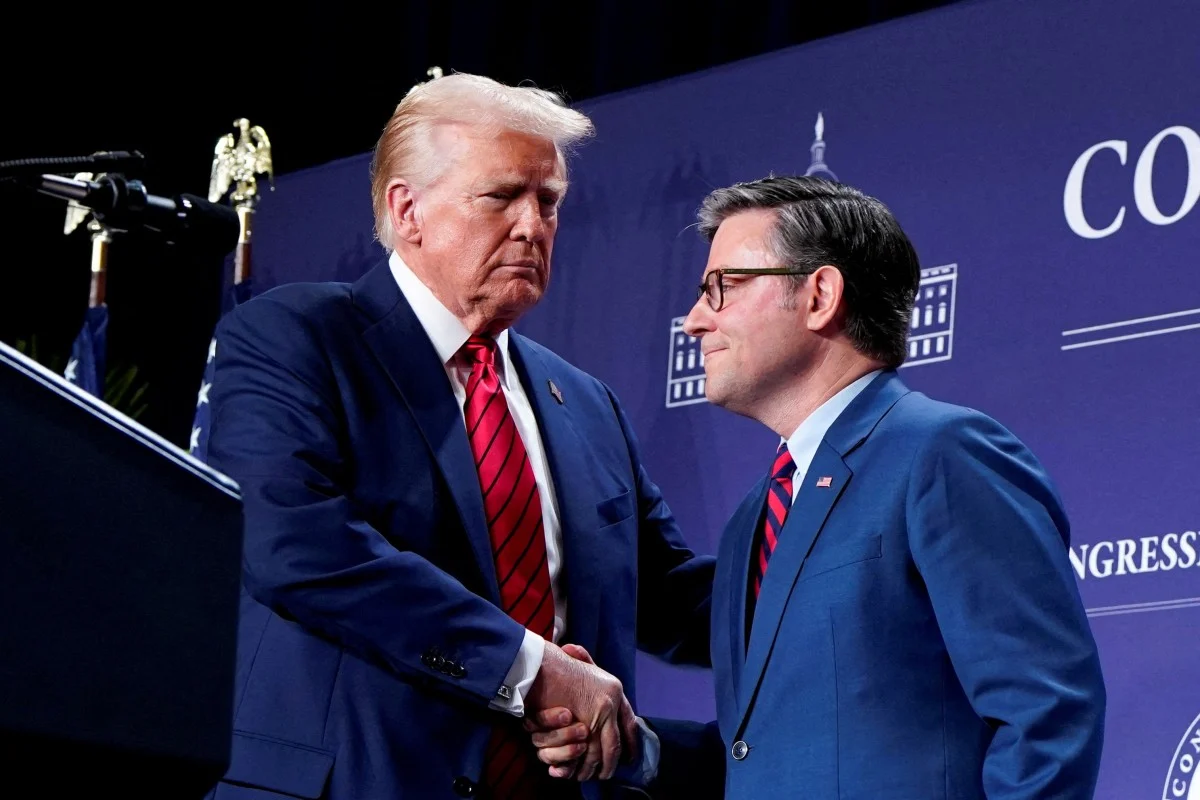Historic House Passage in the US
The U.S. House of Representatives approved a sweeping tax and spending cuts package early Thursday morning, marking a significant victory for President Donald Trump and Speaker Mike Johnson.
The legislation, which appeared unlikely to pass just days earlier, was the result of intense negotiations and demonstrated Johnson’s ability to unite a divided Republican caucus, albeit by the narrowest of margins. The final vote was 215 to 214, underscoring the delicate political dynamics at play.
The Package: Taxes, Spending, Security
Dubbed the “One Big Beautiful Bill Act” by Republicans, the legislative package touches on a wide range of policy areas. It aims to fulfill many of Trump’s campaign trail promises, including making permanent essentially all of the 2017 individual income tax breaks and eliminating taxes on tips and overtime pay. Additionally, the bill devotes billions of dollars to border security, intended to allow for a major crackdown on immigration.
Details of the Approved Legislation
Among the most notable provisions, the package includes deep cuts into two key safety net programs: Medicaid and food stamps. In an effort to win over votes, Republican leaders made changes the evening before the vote, such as speeding up work requirements for Medicaid to the end of 2026.
The legislation also calls for phasing out Biden-era energy tax credits sooner than planned and formalizes an increase in the state and local tax (SALT) deduction cap to $40,000 for certain income groups, a crucial concession to Republicans from states like New York, New Jersey, and California.
The Tight Vote and Negotiations
Passing the bill required carefully threading the needle between the demands of conservative hardliners and centrist Republicans. With a razor-thin majority, Speaker Johnson could only afford a handful of defections. In the end, only three Republicans voted against or present: Reps.
Thomas Massie and Warren Davidson voted no, while House Freedom Caucus Chairman Andy Harris voted present. Notably, Rep. Chip Roy, one of the bill’s biggest critics, ultimately voted yes after negotiations.
Trump and Johnson’s Role in the Win
President Trump played a direct and significant role in the bill’s passage. He met with GOP lawmakers multiple times during the week, making impassioned appeals for them to back his agenda.
At a moment of crisis for Johnson, with conservatives vowing to block the bill over wanting more spending cuts, Trump summoned key members to the White House and delivered a 90-minute address to the full House GOP conference, alternating between strong-arming and cheering them on, which was critical in realigning the necessary votes.
The Path to the Senate and Next Steps
Despite its passage in the House, the future of the package in the Republican-controlled Senate remains unclear. Senators have signaled they plan to make their own changes to the legislation. However, there is intense pressure to move quickly; Trump and Johnson have expressed a desire for the bill to be signed into law by July 4.
Any changes in the Senate could upset the careful balance struck in the House to secure its passage, setting the stage for further negotiations between the two chambers of Congress.
Contact us today through our website or WhatsApp to discover how we can help you achieve success in the United States. Together, we can turn dreams into reality.
Information source: edition.cnn.com



